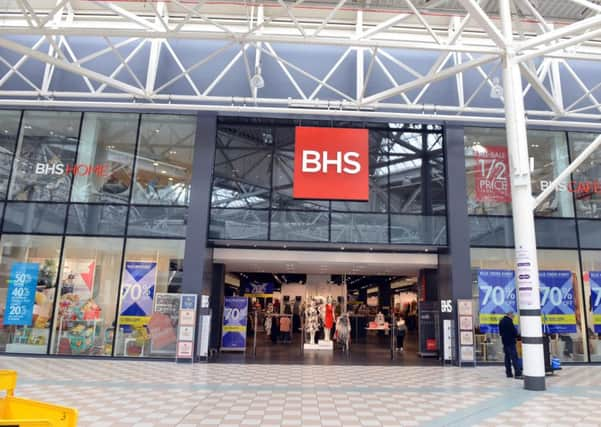IAIN WRIGHT: Do we need changes in law to avoid another BHS?


However, like Woolworths before it, which occupied for many years the same space in the shopping centre as BHS does now, BHS is facing a very uncertain future. The chain has in the last two weeks gone into administration, putting the future of 11,000 jobs and about 175 stores around the country, including the one in Hartlepool, in doubt. A buyer is currently being sought by the administrator, but this is understandably an uncertain and anxious time for thousands of people who work in BHS.
Retail is an incredibly difficult sector. Shopping habits and tastes are changing. The rise of on-line shopping is altering the industry at a very fast pace. Constant innovation and investment is needed to lure the shopper into parting with their hard-earned cash. Some retail businesses will thrive, others will fail.
Advertisement
Hide AdAdvertisement
Hide AdHowever, what I think is important is the months and years leading up to BHS going into administration. BHS was bought by Sir Philip Green in 2000. In March 2015, just little over a year ago, he sold the business for a pound to a largely unknown company, Retail Acquisitions Group, headed by somebody who was a three-times bankrupt individual with no experience, so we understand, of retail.
Philip Green and his family took about £400 million out of the business in the form of dividends. This was at a time when the BHS pension scheme was going from a surplus into a deficit. The issue raises significant questions about whether the owners and directors of BHS acted in the best long-term interests of the company and their employees. Is the law adequate at the moment or does it lend itself towards allowing too freely an owner of a business to asset strip, take out huge amounts of cash from it and then dump and run, leaving pensioners out of pocket and the taxpayer to possibly pick up the tab in the form of additional benefits to pay? What checks are made to stop owners from flogging businesses to anybody without proper investigation as to whether these people are able to run a company with a turnover of many billions of pounds, several thousand employees and significant obligations to the pension scheme?
Those questions are why the Business, Innovation and Skills Select Committee, which I chair, has launched an investigation into the sale and acquistion of BHS. We are working jointly with the Work and Pensions Committee, chaired by Frank Field, which is taking a close interest into whether the powers protecting those who have paid into a pension scheme are strong enough. We had the Pensions Regulator in front of us on Monday, who told us that she found out about the sale of BHS, with the impact that would have on the pension scheme, in deficit by £571 million, by reading it in the newspaper. That doesn’t exactly fill you with confidence.
We will have other witnesses before us as the inquiries progresses, including Philip Green.
We are keen to find out what happened, whether it was appropriate and if the rules need to be tightened up as a result.